Eight new graduate and postdoctoral fellows join the Wu Tsai Institute
This fall, six graduate students and two postdoctoral scholars across several disciplines became fellows in the Wu Tsai Institute, increasing to 22 the total number of trainee fellowships awarded by the Institute in the last two years. These fellows are united in their overarching interest to understand human cognition and make science more inclusive.
Two months after moving into its new home at 100 College Street in downtown New Haven this summer, the Wu Tsai Institute marked the arrival of the incoming cohorts of fellows to its growing graduate and postdoctoral fellowships programs. The Institute also welcomed its new Manager of Student and Postdoctoral Programs, Liz Knapp, who joined the WTI in July after finishing her postdoctoral training in neuroscience at UCLA. The latest members of the Wu Tsai Community celebrated the start of their fellowships at 100 College in the Institute’s colorful new event space on the eleventh floor.
On separate occasions, Graduate Fellows and Postdoctoral Fellows got to know one another and mingled with Wu Tsai Faculty Members. The intentionally designed space offers expansive views of downtown New Haven, communal seating, innovative nooks, and an upcoming espresso bar to cultivate collaboration and creativity—a physical and intellectual home base for these fellows as they grow in their interdisciplinary research pursuits.
The welcome receptions are the first of many events planned to bring the fellows together this year. They also join a robust trainee community in the Institute represented by the Student and Postdoc Committee, which organizes myriad scientific, professional, and social activities throughout the year.
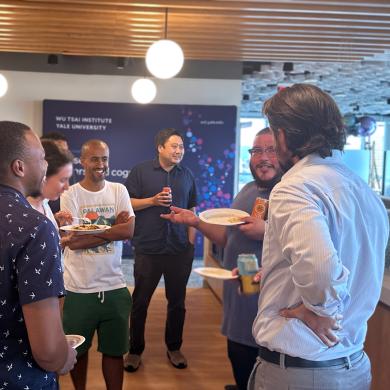
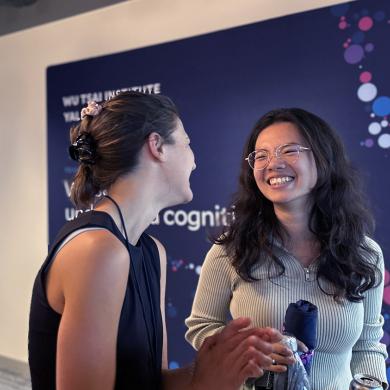
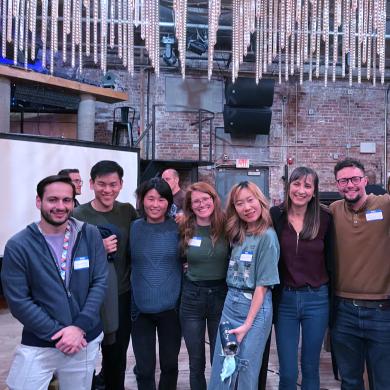
Collaborative cohort of grad students transcends PhD programs across Yale
Six new doctoral students were named 2023 Wu Tsai Graduate Fellows when they matriculated at Yale this fall: Quan Le (Statistics and Data Science), Kate Maier and Vincent Tse (Interdepartmental Neuroscience Program), Kathy Shi (Psychology), Sanjana Taneja (Physics), and Miranda Zhu (Linguistics). They join nine graduate students from the inaugural 2022 cohort of Wu Tsai Graduate Fellows. Collectively, the fellows represent seven doctoral programs and concentrations across GSAS. Each cohort brings unique experiences, interests, and perspectives that further the Institute’s commitment to more diverse, equitable, and inclusive science.
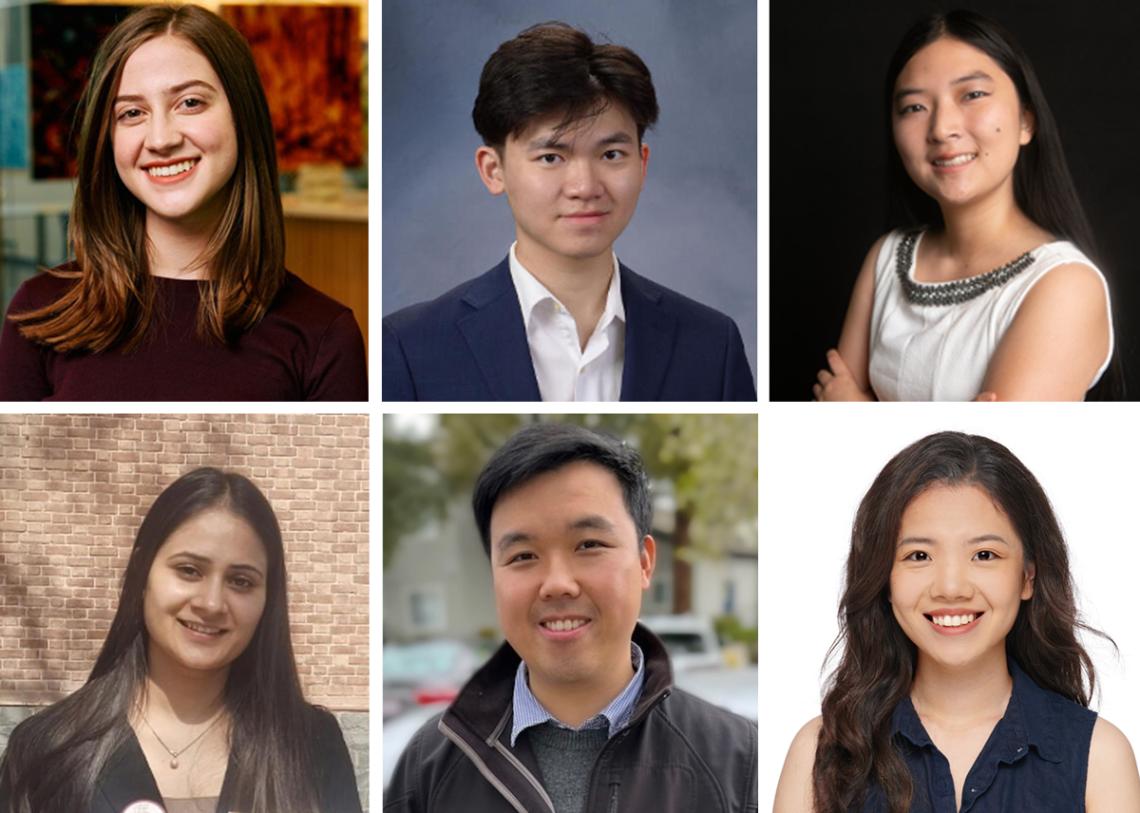
The disciplinary breadth of the Fellows arises from the ability of any applicants to Yale’s Graduate School of Arts and Sciences (GSAS) to indicate an interest in an Institute fellowship on the common GSAS application form. All doctoral programs in GSAS are welcome to nominate applicants for an Institute fellowship. Applicants are selected based on their interdisciplinary interests in understanding human cognition and exploring human potential.
"I am eager to join such a collaborative community of researchers who share my curiosity to understand how the brain works from cells to circuits to behavior," expressed Vincent Tse as he embarked upon the first few weeks of his fellowship. Lester Rodríguez Santos, a 2022 Wu Tsai Graduate Fellow studying the biological mechanisms behind substance abuse and other psychiatric disorders with neuroimaging technologies in the labs of Kelly Cosgrove and Sarah Yip, explained, "From the beginning, WTI's mission resonated with me. I felt that being a part of it would provide me with important opportunities for my professional and academic development."
Postdoctoral fellows bring fresh perspectives and skill sets
The newest Wu Tsai Postdoctoral Fellows are Malika Datta and Rahul Singh. Datta received her doctorate from Columbia University's Neurobiology and Behavior Program. She will deploy multiphoton imaging of subcellular neuronal activity under the mentorship of Cristina Rodriguez (Biomedical Engineering) and Michael Higley (Neuroscience). Singh received his doctorate in Machine Learning at Georgia Institute of Technology. He will use multimodal manifold learning to analyze emotional states in two-person interactions, bridging the labs of Joy Hirsch (Psychiatry) and Smita Krishnaswamy (Genetics and Computer Science).
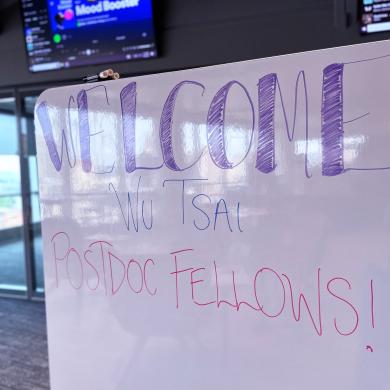
The Wu Tsai Postdoctoral Fellowship program encapsulates the Institute's focus on driving collaboration across disciplines and fostering integrative insights into the mind and brain. Fellows cultivate research projects that bridge scales and methods by working with advisors from multiple labs and departments. They are selected based on a track record of interdisciplinary scientific achievements, commitment to advancing diversity, equity, and inclusion, and their ability to make meaningful contributions to the Institute’s community.
The 2024 Wu Tsai Postdoctoral Fellowships application is now open, and the deadline to apply is November 15, 2023. There are two application tracks—Computational and Experimental—which both offer a generous salary, an inspiring community of peers and mentors, and access to leading-edge facilities and services. Read more about the program and apply on Interfolio.

“I feel very fortunate to be a part of this Institute, with the opportunity to collaborate with outstanding individuals from diverse backgrounds."
-Malika Datta
Wu Tsai Graduate and Postdoctoral Fellows are supported in their pursuit of interdisciplinary research that drives discoveries about the mind through integrated study of the brain. The Institute’s fellowship programs attract early-career scientists from a comprehensive spectrum of fields interested in gaining and applying expertise to advance ambitious and innovative neuroscience research at Yale as they prepare for independent careers. Learn more about the Institute's initiatives.
